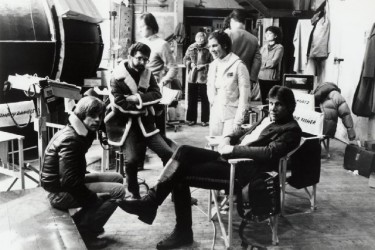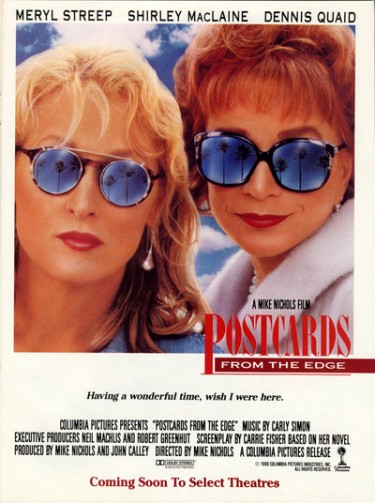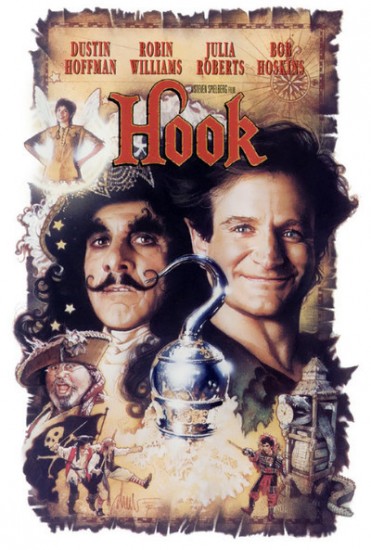Did Carrie Fisher Work as a Script Doctor on Over a Dozen Hollywood Films?
Here is the latest in a series of examinations into urban legends about movies and whether they are true or false. Click here to view an archive of the movie urban legends featured so far.
MOVIE URBAN LEGEND: Carrie Fisher worked as a script doctor on over a dozen Hollywood films.
Besides making them cultural icons and movie stars, George Lucas also helped the stars of the original Star Wars in other ways.
First off, he famously gave Mark Hamill, Harrison Ford and Carrie Fisher a quarter of a percent of his cut of the Star Wars profits, which made each of the actors millions (Lucas also gave Steven Spielberg a cut of the film, as well, as part of a bet that we covered in an old Movie Legends Revealed). Secondly, he allowed them to develop their characters as the film series went on. Harrison Ford was the first one to really get a say in his character of Han Solo (including almost convincing Lucas to kill Han off), but one thing most of the actors agreed on was that they had a problem with George Lucas’ dialogue for their characters. Alec Guinness once wrote about the film, “New rubbish dialogue reaches me every other day on wadges of pink paper — and none of it makes my character clear or even bearable.” A few years back, Carrie Fisher spoke about Lucas’ approach to their dialogue:
Harrison Ford was rewriting his stuff in all the Star Wars movies and it became annoying because it impacted my stuff. It is easier as an actor to go into rewriting because you know what would fit into your mouth dialogue wise. We would tell George Lucas, “You can type this shit but you can’t say it.”
By the third film, I was rewriting a little bit of my dialogue.
Lucas allowing Fisher to work on her own dialogue eventually served her well, as she later became one of the top script doctors in Hollywood, known for her great dialogue! Read on to see how it all happened and what eventually drove her out of the script doctoring business.
Carrie Fisher, as you likely all know, was the daughter of celebrities Eddie Fisher and Debbie Reynolds. As she was just 20 years old when Star Wars was released, Fisher was unprepared for stardom and did not handle it particularly well. She became addicted to drugs during the early 1980s. Fisher is bi-polar, as well, which certainly did not go well with her drug addiction. She co-starred in the film “The Blues Brothers” with Dan Ackroyd and John Belushi, both known for doing a good deal of drugs. Fisher later recalled, “Hanging out with them didn’t help, and John actually recognized it in me. Slowly I realized I was doing a bit more drugs than other people and losing my choice in the matter.” After a drug overdose in 1986, she turned her life around with drug rehabilitation. In 1987, she released the semi-autobiographical novel, Postcards from the Edge, about a young actress dealing with a drug overdose and her overbearing actress mother.
In 1990, Fisher wrote the screenplay for the film adaptation of the book, starring Meryl Streep and Shirley MacLaine.
The film was a modest success, but most importantly, Fisher’s dialogue in the film was widely praised. This led to her getting an offer to work as a script doctor for the first time. A script doctor is a writer who is brought in to help with the screenplay of a film. Most commonly, they are there to help with the dialogue of the film, to “punch” things up a little (Quentin Tarantino famously worked on the dialogue in the film “Crimson Tide,” including adding a memorable recurring bit involving the Silver Surfer) but they can also help with the film’s structure and improving the motivations of characters. William Goldman, Joss Whedon and Tom Stoppard are just three famous screenwriters who have worked as script doctors during their careers. Due to Writer’s Guild rues, script doctors are almost never credited.
In 1991, Steven Spielberg brought Fisher on to his Peter Pan film, “Hook,” to specifically work on the dialogue for Julia Roberts’ Tinkerbell, I suppose under the theory that she wrote women well (after her success with “Postcards From the Edge”).
However, you can’t really just write one character’s dialogue in a movie. You inevitably have to write a scene between the character and somebody else. So soon, Fisher was adding scenes to the movie. Her work on “Hook” then got her a gig helping out the script of the film “The River Wild.” Very soon, Fisher was one of the most in-demand script doctors in the business, getting paid large sums of money to come in and help films in trouble. Some she was successful at (she famously helped not only the script on “Sister Act” but the relationship between Whoopi Goldberg and Disney Pictures chairman Jeffrey Katzenberg, who were at each others’ throats during the filming of the movie) and some not even she could save (“The Last Action Hero” brought in a ton of writers, one of which was Fisher to give the movie a “woman’s touch.” “The Last Action Hero” even tried to bring in the original screenwriters for help after firing them early on).
All told, Fisher worked as a script doctor on over a dozen Hollywood films, including the aforementioned films, as well as “The Wedding Singer,” “Outbreak,” “Milk Money,” “Lethal Weapon 3,” “Coyote Ugly,” “Scream 3,” “Made in America,” “So I Married an Axe Murderer,” “Love Affair” and, bringing her career full circle, helping George Lucas with dialogue on the three Star Wars prequels.
However, Fisher ultimately stopped working as a script doctor, citing both a new generation of writers coming up in Hollywood but, more specifically (in an interview with Newsweek):
I did it for many years, and then younger people came to do it and I started to do new things. It was a long, very lucrative episode of my life. But it’s complicated to do that. Now it’s all changed, actually. Now in order to get a rewrite job, you have to submit your notes for your ideas on how to fix the script. So they can get all the notes from all the different writers, keep the notes and not hire you. That’s free work and that’s what I always call life-wasting events.
But yes, for a time there, Fisher was one of the best in the business. The legend is…
STATUS: True
Thanks to CBR Editor Rob Levin for suggesting this one! And thanks to Jonathan McNamara and Ramin Setoodeh for the interviews with Fisher. And thanks, of course, to Fisher for the information.
Feel free (heck, I implore you!) to write in with your suggestions for future installments! My e-mail address is bcronin@legendsrevealed.com.








